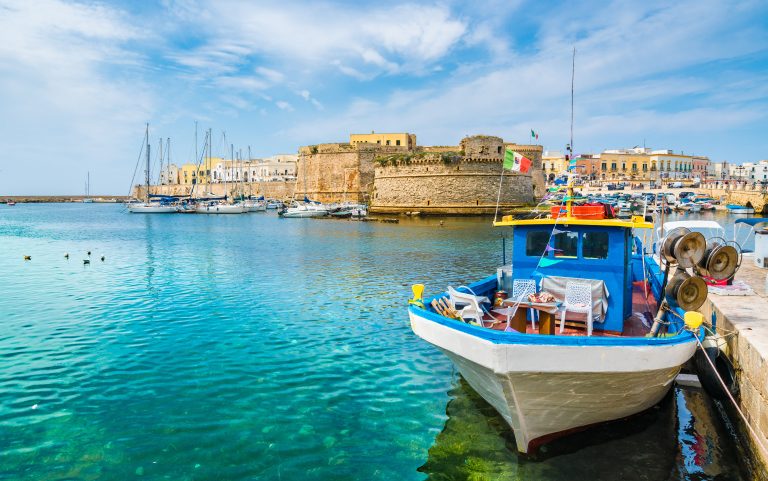 Nautica Italiana’s Manifesto identifies 9 essential requirements for unlocking the domestic market and boosting the development of and creating employment in our industry. There are nine essential proposals for boosting the development and creating employment in our industry, relating to five strategic areas:
Nautica Italiana’s Manifesto identifies 9 essential requirements for unlocking the domestic market and boosting the development of and creating employment in our industry. There are nine essential proposals for boosting the development and creating employment in our industry, relating to five strategic areas:
· Tax regime and transparency
· Development of the small and medium-sized nautical industry
· Support to the Large Yacht industry and its services
· Support to the operators of Marinas and infrastructures
· Streamlining of procedures
By implementing such simple and clear actions, not covered in the Delegated Law for the Code reform, Nautica Italiana guarantees their efficacy for the sector’s recovery and the resultant increase in employment.
The Manifesto’s nine proposals
1. A “Bollino Oro” to carry out controls directly on land rather than at sea
2. A moratorium on onboard controls until the Registro Telematico (Online Register) is adopted
3. Creation of reception facilities for boats, managed on a non-profit making basis
4. Establishment of a competitive Italian Register for large commercial yachts
5. Regulations for professional qualifications in line with those in other European countries
6. Uniform application of VAT at 6.6% for pleasure boat charter
7. Maintenance of State contractual agreements for marina concessions
8. Issue of the main Legislative Decrees implementing the Nautical Code within 12 months
9. The definitive simplification of bureaucracy and regulations
By working alongside institutions, Nautica Italiana should be able to ensure concrete and important results for the nautical sector and, consequently, for employment dynamics, against a minimal economic impact for the Italian government.
Reasons and contents of the Manifesto’s nine proposals
1.A “Bollino Oro” to carry out controls directly on land rather than at sea
The “Bollino Oro”, issued by the competent Administration, confirms that ownership of the boat is consistent with the ship owner’s tax position. It is today essential for the domestic market to create a climate of confidence and serenity and so encourage recreational yachting
2. A moratorium on onboard controls until the Registro Telematico (Online Register) is adopted
Suspending controls in marinas by the Guardia di Finanza police and Harbourmaster’s Office for reasons other than security, until the Online Register comes into force. In fact, the Online Register will give the Tax Authorities full and easy access to boat owners’ names which can then be cross-referenced with their financial position.
3. Creation of reception facilities for boats, managed on a non-profit making basis
The adoption of buoys and reception facilities in the sea and on dry land, for boats, operated by non-profit making entities and designated for the resident population with a requirement to allocate a significant number of spaces for rent (French model). Receptivity with light infrastructures at low cost is today the priority for supporting the small boat sector
4. Establishment of a competitive Italian Register for large commercial yachts
The establishment of an Italian Register for registering commercial yachts consistent and competitive with that adopted by England, Malta and the Netherlands. Italy, which has the largest European nautical industry, must not lose registrations to other foreign Registers which take employment away from the country.
5. Regulations for professional qualifications in line with that of other European countries
Making professional qualification regulations match other European countries, on Certificate renewal and validating navigation on private yachts as well. Without these measures, Italian onboard personnel will continue to be forced to emigrate to the UK to obtain professional qualifications, to the detriment of employment in Italy.
6. Uniform application of VAT at 6.6% for pleasure boat charter
Standardising the application of VAT at 6.6% to charter contracts for all pleasure boats originating in an Italian port, in keeping with the VAT applied to leasing contracts. This measure would make Italy more competitive in respect of many other European countries.
7. Maintenance of State contractual agreements for marina concessions
Pacta sunt servanda: the State cannot break formal marina concession contracts, as if they were bathing concessions. A measure is required to stop the application of higher fees than those agreed and already budgeted by operators becoming an irresolvable problem.
8. Issue of the main Legislative Decrees implementing the Nautical Code within 12 months
Issuing of the main Legislative Decrees for reform of the Nautical Code within 12 months, rather than 24. Essential for providing timely support to operators.
9. The definitive simplification of bureaucracy and regulations
As far as the regulatory-bureaucratic aspects are concerned, Nautica Italiana is offering to indicate to the Government the simplified procedures to be adopted at administrative level within a short time and in any event no later than three months.
The Regulatory-Bureaucratic Aspects are set out below
· Sales outside the EU. Time limit for leaving territorial waters extended to 6 months
· Definition of rules for VAT exemption on non-EU pleasure boats in line with European Union indications and as applied by competing countries
· Refit works on non-EC boats. Guarantee policy on VAT for works to be carried out, not on the boat’s value
· Making non-mandatory the presence of a doctor for medium-small boat sea trials
· Simplification of administrative procedures relating to large yacht traffic
· Standardising the regulations for protected marine areas with European regulations, also providing for controlled access to pleasure boats
· Standardising regulations on VAT taxation on diesel fuel amongst the various Italian ports.







